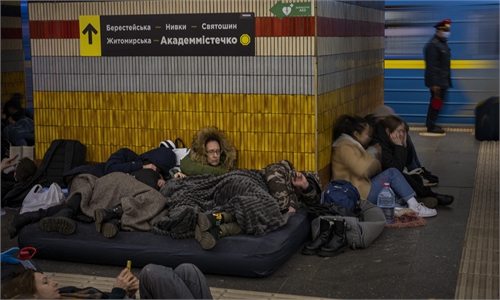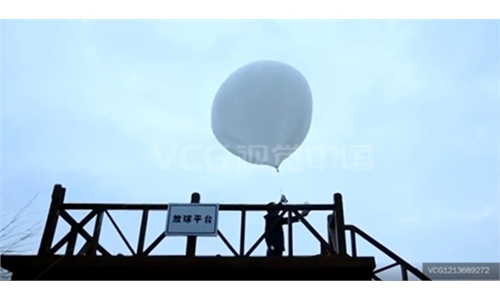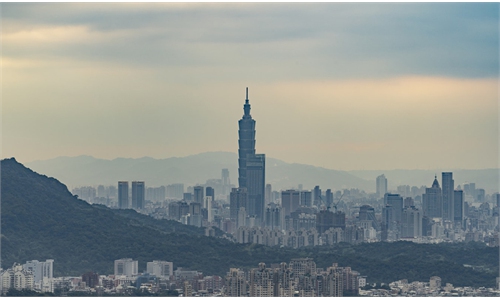
Illustration: Chen Xia/GT
Mike Pompeo, former US secretary of state under the Trump administration, will be on a visit to the island of Taiwan from March 2 to 5, accompanied by his former Chinese-born policy adviser Yu Maochun, known as Miles Yu in the US, who is extremely anti-China. Unlike previous visits to the island by former US officials like president Bill Clinton, Pompeo's trip will have more political maneuvering.
Pompeo is known for being anti-China and has made multiple decisions during his tenure seriously harming China-US relations, including defining China as a strategic competitor and instigating a trade war. His tough stance on China characterizes his visit as a step to contain China.
The US has been using high-level visits between the US and the island of Taiwan to undermine China-US relations for a long time, and Pompeo's visit was proposed just after he stepped down as secretary of state in March 2021. During his tenure, Pompeo sent senior State Department officials to the island several times, for example, sending then-assistant secretary of state Clark Cooper in August 2020.
As usual, Pompeo is believed to be paid a large sum of money for his speech, and both he and Yu will be received extravagantly, which would be a "surprise" for the two former officials who are now ordinary researchers at the Hudson Institute.
In addition to the regular speeches, Pompeo will meet with Taiwan regional leader Tsai Ing-wen and other senior members of the Democratic Progressive Party (DPP) authority, and visit TSMC, CSC, and other companies considered mainstays of the island by the DPP. This arrangement, highly political and different from previous visits by other senior US officials, is related to Pompeo's strong anti-China stance and the current political climate in the US.
The decline of public support of the Biden administration and the possible failure of the Democratic Party in the mid-term elections increases the chances for the Republican Party and Pompeo to make a comeback in 2024. As playing the "Taiwan card" and provoking China has become standard in US politics, Pompeo's visit is aimed to gain media exposure and reap political benefits, especially when he is not capable of gaining enough public support as a mere researcher despite larger ambitions.
The DPP authority's hospitality to Pompeo shows that it seems to be taking sides again in US domestic politics, betting on the Republican Party and Pompeo. Some experts on the island believe that Pompeo's visit is a mirror of both US parties' support of Taiwan, and also a "forward deployment" by the DPP authority considering Pompeo's "bright political future."
Tsai once bet on Donald Trump in the 2020 US presidential election. The Biden administration has basically inherited Trump's pro-Taiwan policy, but the DPP authority is still worried about Biden's return to Obama's strategy of using Taiwan to constrain the Chinese mainland without enhancing the relationship with Taiwan.
Against the background of the current Ukraine crisis, there have been concerns in the US that China will use the crisis to achieve reunification. Therefore, the US, though making a commitment to China to "oppose Taiwan independence," chooses ways to strengthen deterrence against China, including sending the guided-missile destroyer USS Ralph Johnson across the Taiwan Straits and approving Pompeo's visit.
In short, there is an evil intention behind Pompeo's visit, which has negative impacts. But this is only a poor political farce, as Taiwan Affairs Office of the State Council spokesperson Ma Xiaoguang noted, "no matter how the DPP authority and external forces collude with each other, they cannot change the fact that Taiwan is part of China, nor can they obstruct the historical trend of China's reunification and the rejuvenation of the Chinese nation."
The author is an associate research fellow of the Institute of Taiwan Studies, Chinese Academy of Social Sciences. opinion@globaltimes.com.cn



